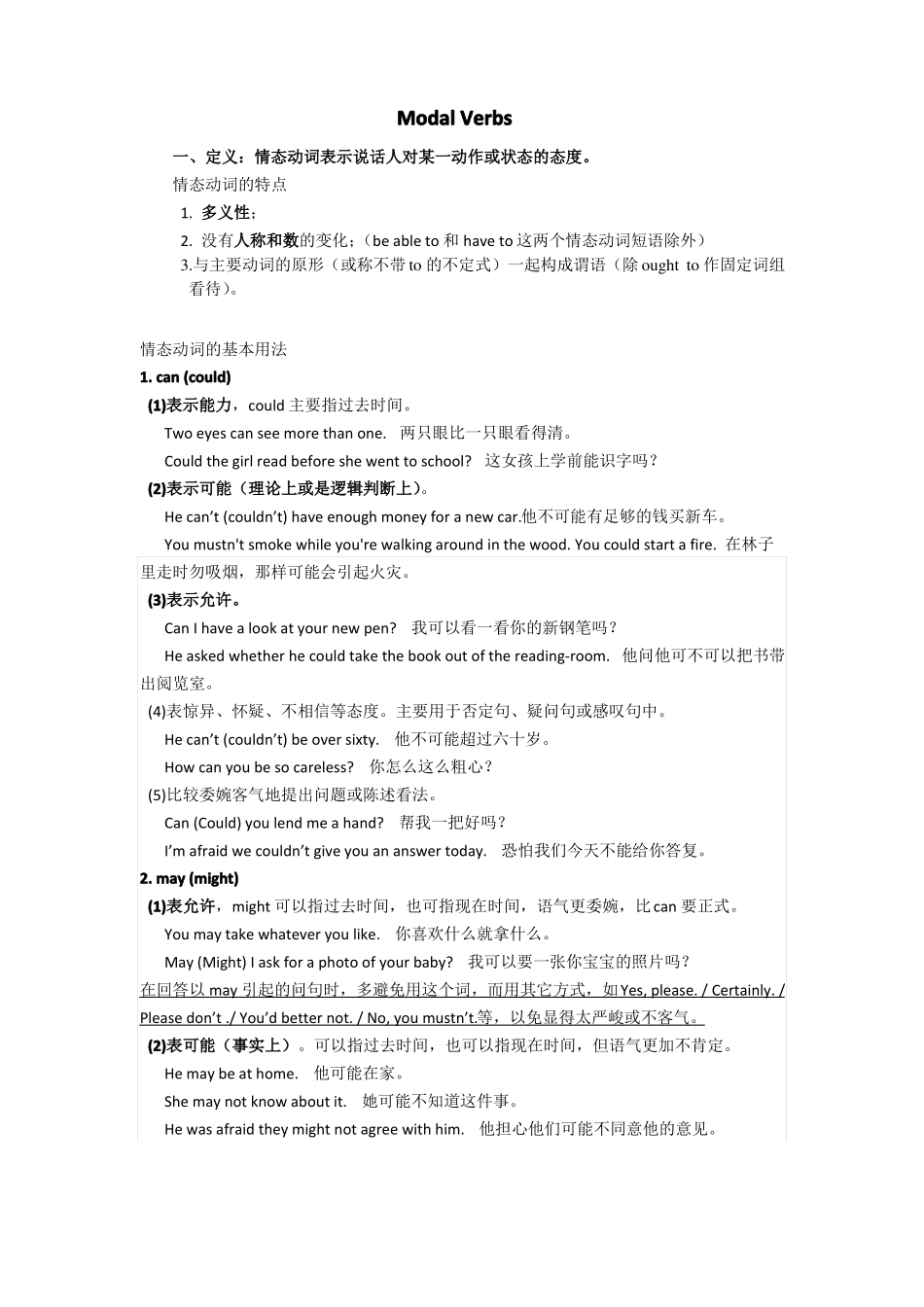Modal Verbs一、定义:情态动词表示说话人对某一动作或状态的态度。情态动词的特点1. 多义性;2. 没有人称和数的变化;(be able to 和 have to 这两个情态动词短语除外)3.与主要动词的原形(或称不带 to 的不定式)一起构成谓语(除 ought to 作固定词组看待)。情态动词的基本用法1. can (could)(1)表示能力,could 主要指过去时间。Two eyes can see more than one. 两只眼比一只眼看得清。Could the girl read before she went to school? 这女孩上学前能识字吗?(2)表示可能(理论上或是逻辑判断上)。He can’t (couldn’t) have enough money for a new car.他不可能有足够的钱买新车。You mustn't smoke while you're walking around in the wood. You could start a fire. 在林子里走时勿吸烟,那样可能会引起火灾。(3)表示允许。Can I have a look at your new pen?我可以看一看你的新钢笔吗?He asked whether he could take the book out of the reading-room. 他问他可不可以把书带出阅览室。(4)表惊异、怀疑、不相信等态度。主要用于否定句、疑问句或感叹句中。He can’t (couldn’t) be over sixty.他不可能超过六十岁。How can you be so careless?你怎么这么粗心?(5)比较委婉客气地提出问题或陈述看法。Can (Could) you lend me a hand?帮我一把好吗?I’m afraid we couldn’t give you an answer today.恐怕我们今天不能给你答复。2. may (might)(1)表允许,might 可以指过去时间,也可指现在时间,语气更委婉,比can 要正式。You may take whatever you like.你喜欢什么就拿什么。May (Might) I ask for a photo of your baby?我可以要一张你宝宝的照片吗?在回答以 may 引起的问句时,多避免用这个词,而用其它方式,如Yes, please. / Certainly. /Please don’t ./ You’d better not. / No, you mustn’t.等,以免显得太严峻或不客气。(2)表可能(事实上)。可以指过去时间,也可以指现在时间,但语气更加不肯定。He may be at home.他可能在家。She may not know about it.她可能不知道这件事。He was afraid they might not agree with him.他担心他们可能不同意他的意见。They might be having a meeting, but I’m not sure.他们有可能在开会,...


